Tips That Will Help Get Settled in a New Country
March 5, 2023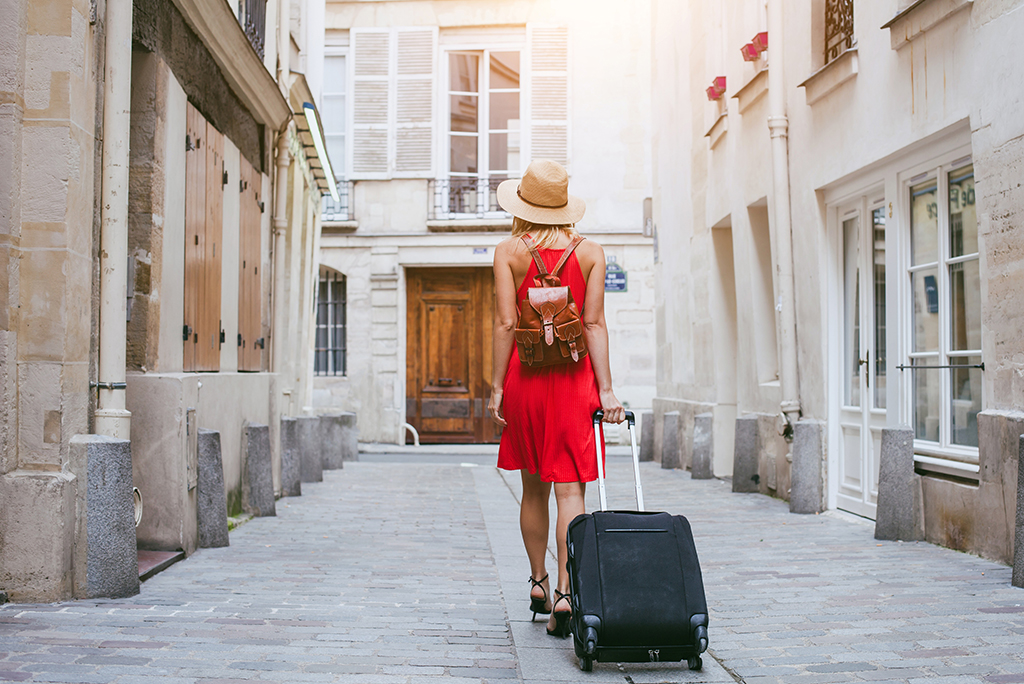
Tips That Will Help Get Settled in a New Country: So you’ve arrived at your new home, unpacked your suitcases and moving boxes, and are ready to embark on your big adventure! Don’t worry if you’re feeling overwhelmed; we’ve got some terrific recommendations to help you settle in as an ex-pat in those early days.
One of the most exciting aspects of being an ex-pat is having nearly unrestricted time to explore your new location. Whether you’ve arrived in a bustling metropolis or a sleepy village, taking some time to explore will be an unforgettable experience. You’ll not only appreciate taking in the new sights and noises, but you’ll also likely begin to gain a sense of where to discover neighborhood conveniences and meet local shopkeepers.
Put some personal touches in place as soon as you can, whether your new home is a small dorm room or a spacious country home. You may be planning to live abroad for a few months or indefinitely, but your home should not be considered transitory. It’s your home for the time being, no matter how long you reside there, so make it a comfortable haven for yourself as you settle in as an ex-pat.
Every ex-pat has a day that is terrible, horrible, no-good, and very bad, just like Alexander in the classic story. It’s an unavoidable consequence of living in a place with a completely different pace and pattern than you’re used to. It will help you avoid catastrophe thinking that you’ve made the wrong choice, or that your new host nation is impossible or full of nasty people if you go into it anticipating a bad day to be just that.
Expect to offend someone, forget your wallet, make a major administrative error, or become lost as you begin your ex-pat experience.
Accept it and write about it in your journal or diary — you’ll love looking back on that crucial aspect of your ex-pat transition.
While it may be tempting to stay at home and video chat with friends or family from back home, make an effort to get out and meet new people in your neighborhood. The richness of developing friendships with locals and other ex-pats will enrich your life tremendously. Perhaps a group of individuals from your language class are getting together for drinks, or another mom from your children’s school is available for a mid-morning coffee. Accept any opportunity to meet new people and learn more about them. And don’t be hesitant to strike up a friendship on your own!
If establishing acquaintances seems hard, consider getting a job or volunteering with a local nonprofit. Although your visa may prevent you from working, there are still many local groups in need of assistance who would welcome your assistance. Many communities have homeless or hungry-aid organizations, animal shelters, local clean-up campaigns, or religious volunteer opportunities. If you’re stuck on ideas, check with local churches or look up non-profits in your area on the internet.
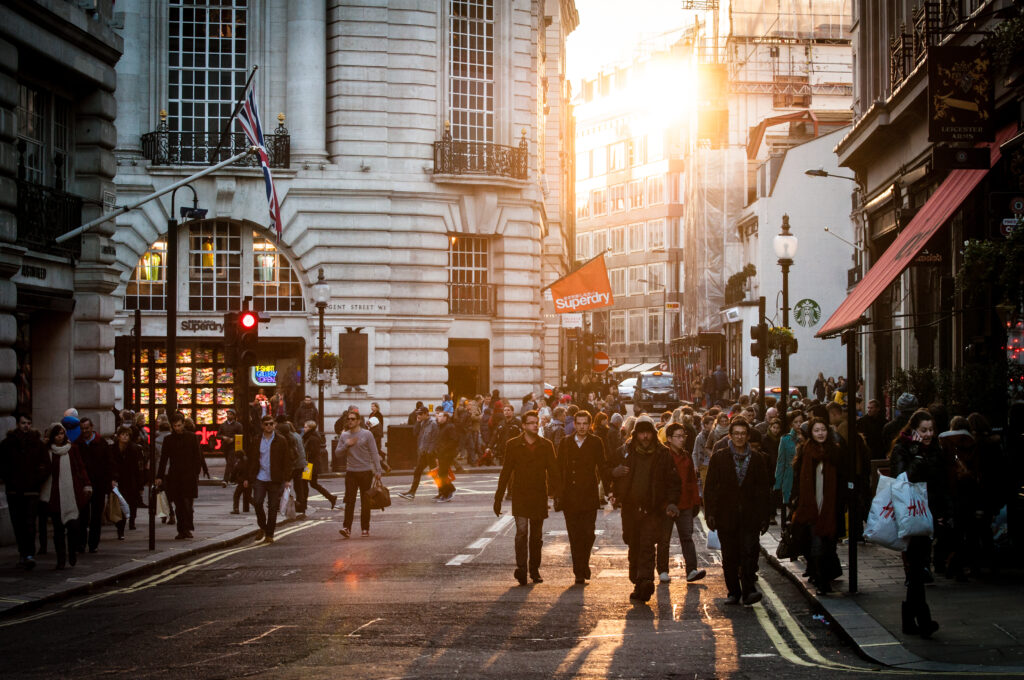
There is no such thing as a simple or painless fresh beginning. If you recall your first day at a new job, or your first day of high school, or the start of a new relationship, you’ll recall how unpredictable and frightening everything seemed. You’re also unlikely to recall the precise moment when that thing shifted from being strange and frightening to being familiar and accepted. It takes some time to go from new to comfy, but it does happen. Your life will become more normal as you spend more time in your host nation. It won’t happen overnight, but it will, so be patient and persevere.
Expat living isn’t just about floating around in a dreamlike condition like in a movie. Real living brings real obligations, and the sooner you can learn to be aware and proactive about your host country’s administrative details, the less stressful your life will be. As you settle into life as an ex-pat, here are some questions to ask yourself – and your new ex-pat friends:
When you live abroad, one of the most important items on your to-do list is to ensure that you and your family have enough health insurance that covers you not only in your ex-pat destination country but also back home and regionally. While comparing different overseas health plans can be intimidating, consulting an expert is a good idea.
Facebook now has a group for practically anything you can imagine. These organizations can be a gold mine of useful advice from ex-pats who have lived in the area for much longer than you. This is where you may get answers to your queries, look for essential resources like educational aids or hairstylists, and, yes, make friends! Try looking for ex-pat groups in your area on the internet or on Facebook. The amazing thing about these groups is that the longer you’re a member, the more you’ll learn about even more great ex-pat communities, and your resource list will continue to grow!
While a new environment with new people and new things to do is part of the thrill of ex-pat life, settling into a predictable pattern will be beneficial to your stress levels and mental health. Making new friends is still crucial, so make sure you leave the place in your schedule for an unexpected lunch invitation or supper with pals. Setting an alarm clock, building a morning routine, following the same route to work or class on most days, and having a nighttime pattern can all greatly aid your adjustment.
It might be as simple as waking up, getting a cup of coffee, and taking a few moments to meditate, or as difficult as finding a morning group exercise class and regularly attending meetup groups. Whatever your program comprises, be sure it works for you and that you maintain it on a regular basis. It might be as simple as waking up, getting a cup of coffee, and taking a few moments to meditate, or as difficult as finding a morning group exercise class and regularly attending meetup groups. Whatever your program comprises, be sure it works for you and that you maintain it on a regular basis.
It might be difficult to adjust to living in a new country. It’s not for the faint of heart, but it’ll lead to adventures that will make all of the effort worthwhile! Yes, there’s still Covid-19 to deal with, but life moves on, and some of us need to travel and live in other countries.
Related Articles:
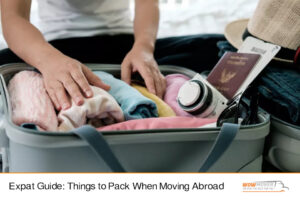




International Relocation Tips to Make Your Life Hassle-Free. Even if you’ve moved numerous times before or this is your first time, the process of relocating is always exhausting. Before a move, it’s often helpful to have some pointers.
For those of you considering a move, here are a few crucial hacks to make your relocation process go as smoothly as possible.
Rather than jotting notes on a sheet of paper or in a notebook, digitally record all of the stuff you need to do before a move. Papers might get misplaced, and lugging them about can contribute to your stress level. So, save all of your important data on your phone, tablet, or laptop so that it is always safe and secure with you.
Understand the place, the city, or the country where you will be traveling much before you move to a new country and focus on a spot that you believe will be close to your place of work and handy for you in every way before deciding on your residence.
If you have pets or want to get one before moving, do your homework and learn about the rules for importing pets into the new nation where you plan to live. There is no universal rule governing the entry of pets from other countries into different countries around the world. So, when it comes to the legalities of taking your dogs with you, do your research and get advice from professionals. After all, your pet is a member of your household.
Related: Traveling with Animals Dos and Donts
When traveling, you should think about what you’ll bring with you and what you’ll need along the way. Medicines, important documents, chargers, and extra clothing should all be packed well ahead of time. This can serve as a useful backup in the event that you need to make an unanticipated hotel stay along the road.
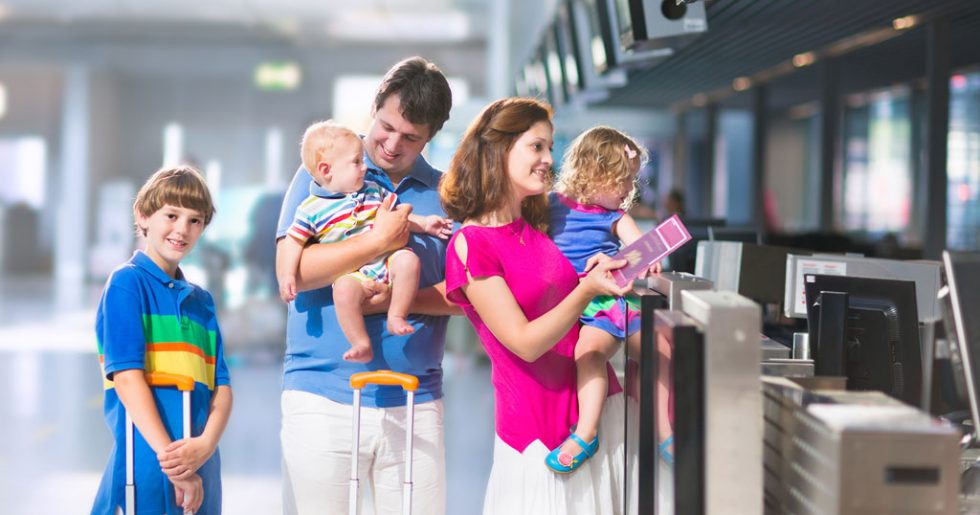
Make your children a part of the relocation process by encouraging them to explore local activities and restaurants in the new place where you will be relocating. When you arrive in your new location, use this knowledge to arrange your family weekend. This will lift your children’s spirits and give you all something to look forward to.
Also, spend time describing the globe map to them before the move to help them grasp and become interested in the voyage ahead. Learn more: Moving Cross Country With a Baby?
There will be numerous items on which you must concentrate following a transfer. You’ll be confused about a lot of things, which means you’ll have to be extremely cautious and avoid making any mistakes. So, make a list of everything that has to be done ahead of time, along with the deadlines for each. This can greatly simplify your life and make you more organized.
So, after a relocation, get settled in your new nation, and to ensure a smooth transition, partner with Wowmover, one of the most reputable names in worldwide mobility.
Read our International Relocation Guides to get a better grip on the new country if you need to know and understand more about the place you’re relocating to.
Related Articles:
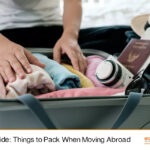




You’ve been offered the chance to live and Move Abroad and experience a once-in-a-lifetime adventure after weeks, months, or even years of devotion, hard work, and patience.
The anxieties have started to creep in after you’ve shared the extremely joyful news with everyone. As exciting as it is to pack your belongings and relocate halfway around the world, the logistics — the preparation — may be hard and stressful.
However, if you start planning ahead of time, you’ll find the entire procedure to be doable. To help you get started, we’ve compiled a list of steps that every aspiring ex-pat should follow before departing, no matter where they’re going or how long the journey will be.
Consider how much it costs to relocate across the United States. Consider how much it will cost to transport you to the other side of the world! The visa application, aircraft tickets, overseas shipments, lodging, and emergency are only a few of the expenses.
When going overseas, the old adage of having six months’ worth of funds is sound advice — and it should be a minimum. We also recommend doing some research on the exchange rate and the cost of living in your new location, as well as creating a monthly budget plan. During the first several months, expect to incur unexpected expenses.
Check the official website of your new nation to discover what supporting documents you’ll need to submit with your application, which may vary based on the visa. For example, if you’re applying for a student visa in the United Kingdom, you’ll need to submit a copy of your university’s offer letter as well as proof that you’ll be able to support yourself throughout your studies. You may also need to make an appointment to submit your biometrics at a Department of Homeland Security application assistance center.
You must have a valid passport in order to apply for a visa. Some countries demand that you travel with a passport that is valid for at least six months beyond your intended departure date. If your passport expires while you’re overseas and you don’t have a specific return date, you can renew it at your local US Embassy or consulate-general.
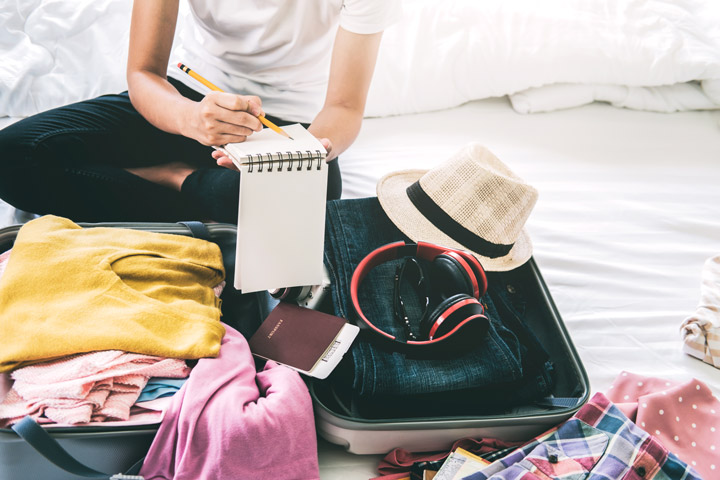
When you reside in another country, you will certainly come into contact with the healthcare system. Check with your current healthcare provider to see whether they will cover you while you are away. Request medical records from your doctor and make sure you’re up to date on all of your vaccines. Here’s where you can find out which ones you’ll need. You’ll also need to find out if your prescription drugs are legal in the country, and if they are easy to obtain. If not, plan on bringing a backup supply on your vacation.
The US Embassy in the country where you will be residing gives a list of physicians and hospitals. In the “U.S. Citizen Services” section of your local embassy’s website, learn about the available medical resources. Check the regulations of the nation you’ll be visiting as well: Even though the country has socialized medicine for its own population, some countries need foreign immigrants to be allowed to finance their own health care.
Enroll in the Smart Traveler Enrollment Program (STEP) of the United States Embassy to receive the most up-to-date information on the safety circumstances in your new destination. Your membership will also assist the US Embassy in notifying you immediately in the event of an emergency, such as a natural disaster or a family issue.
Keep your present bank account to protect your credit score and make direct payments for any outstanding bills or loans. To minimize foreign transaction costs, notify your bank and credit card provider of your travel dates, and consider using an international credit card. You should also look into local banks to see what papers you’ll need to open a savings or checking account in your new city. Setting up an account might take a long time; even if you can’t acquire one before you go, even something as basic as organizing your papers will help speed things along.
Because overseas mobile phone plans can be expensive, we recommend requesting that your carrier unlock your smartphone prior to your travel. Once you’ve arrived in another country, you may buy a SIM card from a local carrier and replace the one in your phone.
Your passport, driver’s license, birth certificate, and immunization records are among these documents. You could need them when you least expect it, and having them readily available will make your life a lot less stressful.
Even if you’re familiar with the area, you’ll need to conduct extensive study in order to prepare for the big move and smooth your transition into your new home. Among the numerous questions, you should ask yourself and think about are the following:
Storage vs. Shipping vs. Selling
Will you transport your goods to your new home or keep them in your home country? You’ll want to consider the logistics and expenses of each option, which can total thousands of dollars. If you’re planning a more permanent relocation, you might choose to sell your stuff. Find out immediately where you can buy must-have things like furniture, bedding, and kitchen equipment, and utensils if you’re intending to relocate overseas with two bags and a carry-on. Learn more: What are the Qualities of a Good Storage Facility
Transportation
Will you drive or take public transportation in your city? If you intend to drive, weigh the benefits and drawbacks of exporting your car, purchasing a new one, and renting a car. Depending on the country you live in, you may also need to obtain an International Driving Permit (IDP) before moving (along with a new driver’s license).
To save money and avoid confusion while using public transportation, understand as much as you can about it – bus vs. metro, monthly pass vs. yearly pass — before you get there.
Culture
Before making the big move, research your new home’s history and how its government currently operates; read up on its social norms and rules of etiquette; read books and movies set in your destination country; and learn a few words and phrases if you are moving to a country where you do not speak the language. Culture shock can be mitigated and social faux pas can be avoided by researching and comprehending the culture (however imperfectly).
For one final hurrah (along with all of your favorite comfort foods), bid farewell to all of your friends and relatives, and prepare for the most amazing adventure of your life. Good luck on your journey!
Related Articles:






Thinking of Moving to Melbourne, Australia? Where do you start planning your move? To make your trip to this dynamic city as easy as possible, read this guide. Because Melbourne is so far away, it’s vital to plan ahead: it’s simple to integrate into the culture if you know English, but moving your belongings and bringing your pet in can take months. So, we have compiled the things you need to know before moving to Melbourne.
Moving to Melbourne, you must carefully assess the advantages and disadvantages of the relocation process. One factor to consider is the city’s remote location: Melbourne, the capital of Victoria State, is located on the southernmost tip of Australia’s island. Driving to Sydney takes about nine hours, and driving to Canberra, Australia’s capital takes about seven hours. Because of the distance between major cities and other nations, transporting your items to “the land down under” might be a lengthy operation.
The relative isolation, which makes moving difficult, is also an appealing feature. Melbourne is popular with expats since it is adjacent to gorgeous beaches while also offering a diverse range of cultural events such as ballet and opera. When you can eat breakfast with friends or go to one of the numerous sports stadiums to watch a game, the effort spent making sure your relocation is successful (even the application process to import your pet can take up to two months) will be well worth it.
Before going to Melbourne, read this guide to learn everything you need to know. Learn about the visa you’ll need and how to get it, as well as our top suggestions and recommendations for a stress-free migration.
Many ex-pats, particularly those from the United Kingdom, Ireland, China, Italy, and Germany, who make up some of the city’s largest ex-pat populations, dream of relocating to Melbourne. In 2018, around 90,000 people moved to Melbourne, joining the 58 percent of Melburnians who have one or more parents who were born elsewhere.
Melbourne is clearly a popular tourist destination. In the InterNations Expat Insider poll, the city is consistently ranked among the best locations to live, and immigration is expected to help the city grow substantially over the next decade. But why should you relocate to Melbourne? What do you need to know to arrange your relocation once you’ve decided to go there?
Any overseas transfer, especially one to an island where belongings must be flown or brought in, has advantages and disadvantages. We take a look at some of the specific benefits and drawbacks to keep in mind as you plan your relocation to Melbourne.
A wonderful educational system. Melbourne’s public education system includes a number of well-known schools and also welcomes ex-pat children. Your children will be able to attend a public school regardless of their visa status.
Healthcare of the highest caliber. Melbourne is home to some of Australia’s best hospitals. Expats moving here need not worry about finding medical facilities or specialists because the city is sure to have someone who can assist them.
A warm welcome awaits you. Melbournians, like other Australians, are recognized for their openness and friendliness. Melbourne is known as Australia’s most multicultural city, and there is a strong ex-pat culture and tolerance of variety.
It’s possible that shipping your goods can take longer than you expect. Melbourne is located on Australia’s southernmost tip, keeping it somewhat isolated from other significant cities and countries. If you don’t plan ahead while shipping your possessions, you may have to wait a long time for them to arrive.
There are strict guidelines for relocating pets. Every pet that arrives in Melbourne must spend ten days in quarantine. This is in addition to a lengthy list of required vaccines and a two-month import application process. In our Moving with Pets to Australia guide, you can learn more about pet relocation.
The price of living. Because city salaries are higher, your living expenditures should be paid. However, unless you have a well-paying career, conserving money will be difficult. You may find yourself having to sacrifice a night out for a night in more frequently than you’d prefer.
Expats who speak English will find it quite easy to settle in Melbourne and blend into the local culture. You may easily meet friends, learn about Melbourne’s history and culture, and participate in all of the activities that make it so enjoyable. Finding a job and a place to live should also be easy because most business is performed in English. Similarly, if you are a natural Mandarin or Cantonese speaker who also speaks English, moving to Melbourne is not difficult. The city has a significant Chinese population, and many street signs are written in both English and simplified Chinese characters.
Taking the plunge and relocating to this global metropolis is a significant decision. Read our relocating to Melbourne tips and advice to get ready for your move, or contact us to schedule a relocation consultation call to go over your options in greater depth.
Melbourne has a well-developed public transportation system, so you won’t need a car to get around. If you have a young family, on the other hand, having a car will be more important to go around the city in the rapidly changing weather and to avoid crowded public transportation. More information can be found in our guide to driving in Australia.
The public school system is open to any youngster living in Australia. This is fantastic news for ex-pats: outside of Asia, Australia has one of the strongest education systems in the world, with tuition typically costing only a few hundred Australian dollars per year. You’ll need proof of your address, proof of your child’s age, and proof of their present level of schooling to enroll in most public schools.
Melbourne also has a number of well-known private and foreign schools. These normally necessitate the child taking an entrance exam and are more expensive (more than 10,000 AUD (6,550 USD) per year.
You will be able to bring your pet to Melbourne if it is not on a banned breeds list. This entails completing a months-long import process, which includes thoroughly vaccinating your pet and placing them in quarantine. Our Moving with Pets to Australia guide will walk you through the entire process.
You should be informed that once your pets arrive in Melbourne, they must be microchipped and registered with a local council, or you will be fined 330 AUD (215 USD). When walking in public, including playgrounds and BBQ areas, dogs must be on a leash, and you must always clean up after your dog. Dogs are allowed off-leash in eight parks in Melbourne; a map of these parks may be found on the City of Melbourne website.
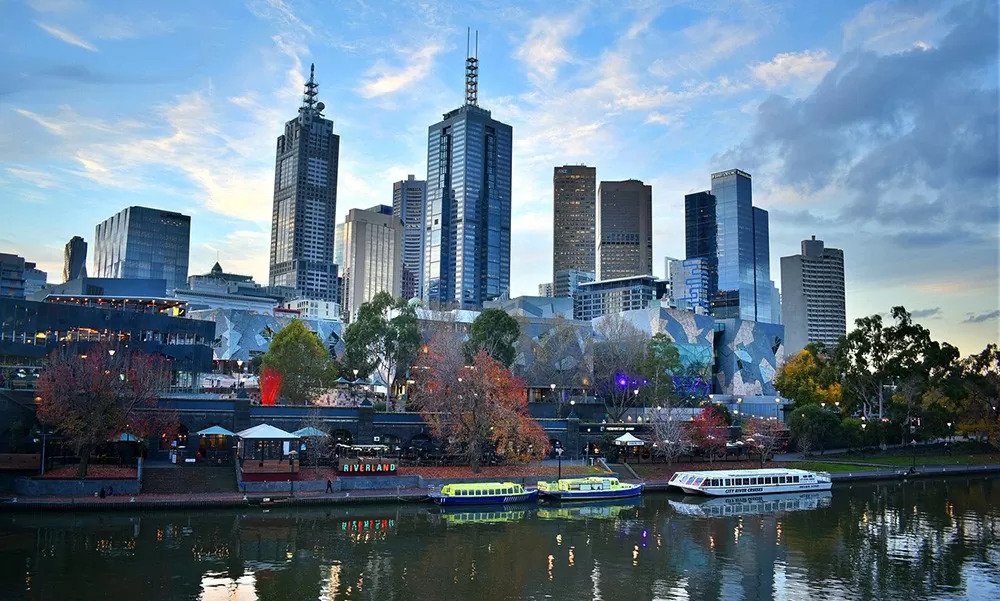
If you want to migrate to Melbourne, you can apply for a variety of visas and work permits, depending on your status and qualifications. If you want to stay in this city for a long time, you’ll most likely need a Skilled Worker Visa or an Employer Nomination Scheme (ENS) visa.
To be eligible for one of these two visas, you must complete the following requirements:
Visas & Work Permits Australia guide has a complete list of available visas as well as more information about the health check, points system, and how to apply for the visa.
With a regular Australian visa and no further papers, you can move to Melbourne. However, the Victoria State government may be able to provide you with a Victorian visa nomination, which will help you with your visa application. This nomination may improve your chances of obtaining a visa.
To be eligible, you must meet all of the requirements for the Australian visa for which you are seeking. To be nominated, you must also meet the requirements set forth by the Victorian government. This could be for a company visa or a skilled worker visa. Finally, you must commit to permanently residing in Melbourne (or the state of Victoria). Visit the Victoria Government’s official website for further information.
How does it feel to live in Melbourne? Every ex-pat wants to know the answer to this question. We delve into what it’s like to live in Melbourne and what it’s like to be a Melbournian. This city guide covers everything from how much transportation costs to how safe certain groups of people, such as women living alone and the LGBT+ community, are in the city. Our top recommendation is to purchase a Myki card, which can be used to pay for tram, rail, or bus rides.
You can also find information regarding Tax File Numbers (TFNs) and Medicare, as well as other key activities that should be on your to-do list and will assist you in settling in within the first few weeks. For example, did you know that you need a TFN to work and open a bank account? When you first move to a new city, it’s easy to overlook these minor details.
If you’re more concerned with where to live in this city, our tour takes you through four fantastic areas. Learn everything there is to know about buying or renting in regions ranging from the affluent Malvern district to the low-cost Sunshine neighborhood. We also look at how the average rent in the city (approximately 420 AUD or 280 USD per week) varies by neighborhood and what it takes to get your dream property. Learn more about what it’s like to live in Melbourne.
Melbourne is a somewhat costly city to live in, thus most ex-pats find it necessary to work there. This section contains all you need to know if you don’t have a job set up and want to work in Melbourne, or if you want to learn more about becoming an entrepreneur in this exciting city. It includes detailed information on the employment market in this area, as well as tips on how to increase your chances of landing your desired job. Networking and where to look for freshly open positions are among the topics covered.
Related Articles:






Buying or renting a property in another country that meets your needs is critical when relocating internationally. Whether you want to buy or rent an apartment, the first step in choosing a new place to call home is to research the property market in the country where you will be residing.
Here’s everything you need to know about buying or renting a property in another country.
Depending on where you plan to live, you can choose from a variety of different sorts of homes. Typical lodging alternatives include:
Because different countries have different legislation, some may require you to provide additional documentation.
The following are examples of documents you could need:
In some cases, you may be required to pay a deposit while signing the contract.
Before you start looking for the perfect apartment, there are a few terms you should be familiar with. You should be aware of the terms used in the country where you will be residing because different countries use different names to describe identical accommodations.
In the United Kingdom, for example, studio flats, 2-level flats, and converted flats are all available. A converted flat is an old house divided into two sections, whereas flats provide housing for a large number of people in a single building.
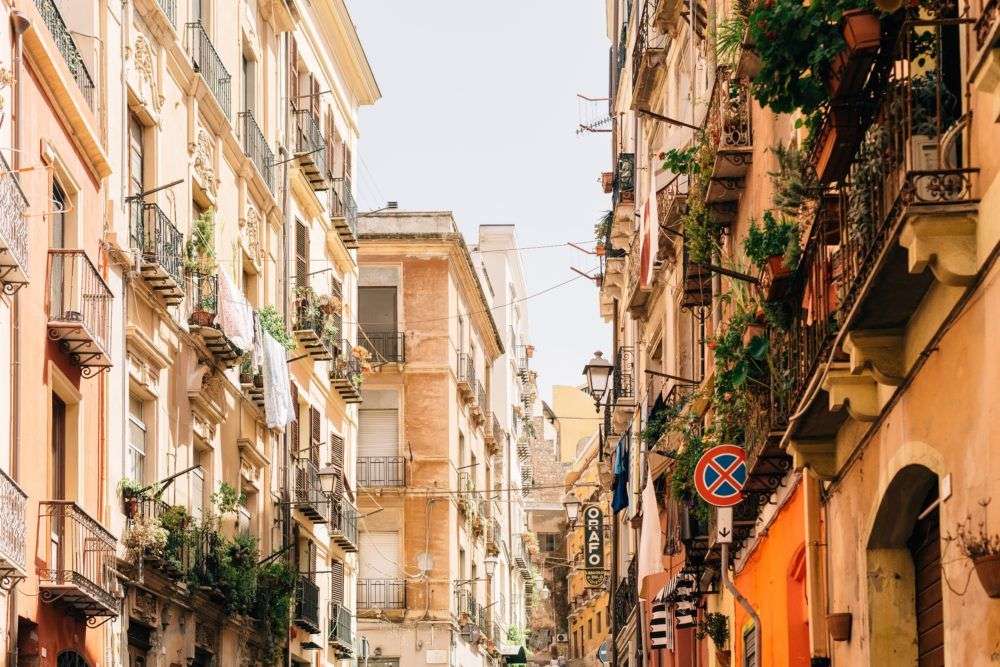
Here are some things to keep in mind while renting or buying a home:
Check out the following property websites:
Also Read : How To Choose The Right Real Estate Agent When Searching for A House**
When renting an apartment as an ex-pat, be aware of any diplomatic terms that may protect you if you are unable to stay in the nation.
Hiring a skilled attorney can also assist you with any potential issues that arise over the course of your home purchase. Look for attorneys who specialize in providing legal services to foreigners in real estate, since they will be able to explain these clauses to you.
While international relocation can be challenging and stressful at times, WowMover can make the process go smoothly.
Do you need assistance in arranging your trip to move abroad? Call WowMover right away!
Related Articles:





